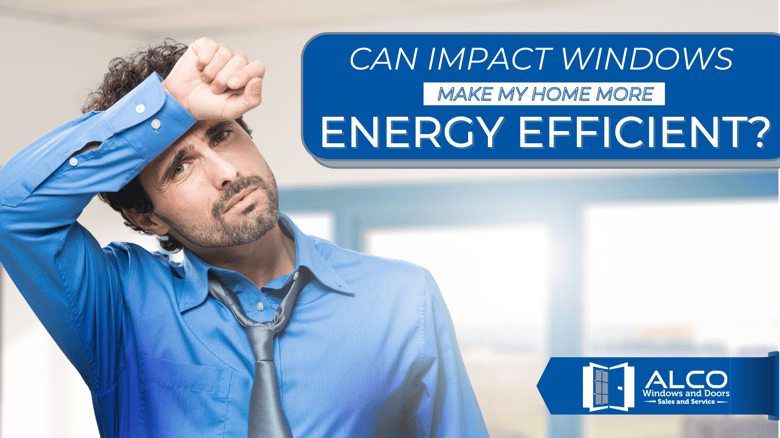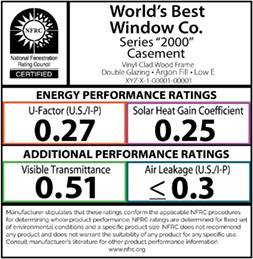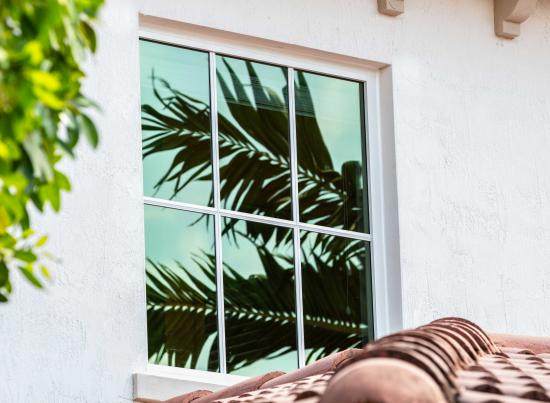In this article, we’ll explore the question of whether impact windows are more energy efficient than traditional windows. We’ll discuss how impact windows work, their insulation properties, and their impact on your energy bills. By the end, you’ll have a better understanding of whether investing in impact windows is a wise choice for increasing the energy efficiency of your home.
What are impact windows?
Impact windows, also known as hurricane windows or storm windows, are specially designed to withstand strong winds and debris during hurricanes and severe weather conditions. These windows are made with reinforced glass and a durable frame that can resist high impact, providing enhanced protection for homes and buildings.
Materials used in impact windows
Impact windows are typically made with laminated glass, which consists of two layers of glass with a layer of polyvinyl butyral (PVB) interlayer in between. This interlayer ensures that if the glass cracks or breaks, it remains bonded together, preventing shards from flying into the building.
The frames of impact windows are usually made with sturdy materials like aluminum or vinyl. These materials are chosen for their strength and ability to withstand extreme weather conditions.
Construction of impact windows
The construction of impact windows plays a crucial role in their energy efficiency. The frames are designed to provide a tight seal, preventing air leakage and reducing heat transfer. The laminated glass used in impact windows also helps to insulate the building by reducing the transfer of heat and cold.
Energy efficiency of impact windows
How do impact windows contribute to energy efficiency?
Impact windows are designed to improve energy efficiency in several ways. Firstly, the tight seal created by the frames prevents air leakage, which can account for a significant amount of energy loss in a building. By reducing air infiltration, impact windows help to maintain a stable indoor temperature and reduce the workload on HVAC systems.
Secondly, the laminated glass used in impact windows provides insulation by reducing heat transfer. This means that during hot summers, less heat will enter the building through the windows, keeping the interior cooler and reducing the need for air conditioning. Similarly, during cold winters, less heat will escape through the windows, keeping the interior warmer and reducing the need for heating.
Insulating properties of impact windows
The insulating properties of impact windows are due to the construction of the laminated glass. The combination of glass layers and the PVB interlayer act as a barrier to the transfer of heat and cold. This reduces the heat gain in the summer and heat loss in the winter, leading to energy savings.
Reduction in air leakage
Air leakage is a common issue in buildings, especially older ones with poorly sealed windows. Impact windows are designed to provide a tight seal, which reduces air leakage and improves energy efficiency. This not only helps to maintain a comfortable indoor temperature but also reduces the load on HVAC systems, leading to energy savings.
Impact on HVAC system
The reduced air leakage and improved insulation provided by impact windows have a direct impact on the HVAC system. With less air infiltration and better thermal insulation, the HVAC system doesn’t have to work as hard to maintain a comfortable indoor temperature. This results in energy savings and extends the lifespan of the HVAC system.
Energy savings with impact windows
The energy savings associated with impact windows can be significant. According to the U.S. Department of Energy, windows account for 25-30% of residential heating and cooling energy use. By installing impact windows, homeowners can reduce their reliance on heating and cooling systems, leading to lower energy bills and long-term energy savings.

This image is property of 4021521.fs1.hubspotusercontent-na1.net.
Benefits of energy-efficient windows
Lower energy bills
Energy-efficient windows, including impact windows, can significantly reduce energy consumption, resulting in lower energy bills. By improving thermal insulation and reducing air leakage, homeowners can save on heating and cooling costs throughout the year.
Improved comfort and indoor temperature control
With better insulation and reduced air infiltration, energy-efficient windows can help maintain a more stable indoor temperature. This means a more comfortable living environment for occupants, with fewer drafts and temperature fluctuations.
Reduced reliance on HVAC systems
Energy-efficient windows reduce the load on HVAC systems by keeping the indoor temperature more stable. This means that homeowners can rely less on heating and cooling, resulting in energy savings.
Environmental impact
Energy-efficient windows not only benefit homeowners financially but also contribute to reducing greenhouse gas emissions. By reducing energy consumption, less power is required from traditional energy sources, leading to a lower carbon footprint.
Evaluating energy efficiency
Understanding U-Factor
U-Factor is a measure of how well a window can insulate. The lower the U-Factor, the better the insulation properties of the window. When choosing impact windows, it is important to look for a low U-Factor to ensure maximum energy efficiency.
Solar Heat Gain Coefficient (SHGC)
SHGC measures the ability of a window to block heat from the sun. A lower SHGC means less heat enters the building through the windows, resulting in better energy efficiency, especially in hot climates.
Visible Transmittance (VT)
VT measures the amount of visible light that can pass through a window. While high VT allows more natural light into the building, it can also result in more heat gain. Balancing VT with other energy-efficient features is important to achieve optimal energy efficiency.
Energy Star ratings
Energy Star is a program developed by the U.S. Environmental Protection Agency (EPA) to identify energy-efficient products, including windows. When looking for impact windows, choosing ones with the Energy Star label ensures that they meet the strict energy efficiency requirements set by the program.
Efficiency considerations for different climates
The energy efficiency of impact windows can vary depending on the climate. For hot climates, windows with low SHGC and high solar reflectance are desirable to minimize heat gain. In colder climates, windows with low U-Factor and high VT can help maximize heat gain from the sun.

This image is property of www.windowanddoorreplacementcompany.com.
Installation and maintenance
Certified installers
To ensure the proper installation of impact windows, it is important to work with certified installers who have the necessary knowledge and experience. Proper installation is crucial to maximize energy efficiency and ensure the windows perform as intended.
Proper installation techniques
Proper installation techniques, such as sealing gaps and using appropriate insulation, are essential for energy efficiency. This includes using proper flashing, weatherstripping, and sealants to prevent air leakage and maintain a tight seal.
Maintenance tips for optimal energy efficiency
Regular maintenance is important to keep impact windows in optimal condition for energy efficiency. This includes cleaning the windows and frames, inspecting for any damage or cracks, and ensuring that the seals are intact. Proper maintenance can extend the lifespan of impact windows and maintain their energy-saving benefits.
Cost considerations
Initial investment
The initial cost of impact windows may be higher compared to standard windows. However, considering the long-term energy savings and potential insurance premium reductions, impact windows can be a worthwhile investment for homeowners.
Long-term savings
The energy savings resulting from impact windows can add up over time, potentially offsetting the initial investment. Lower energy bills and reduced reliance on HVAC systems can result in significant savings throughout the lifespan of the windows.
Return on investment (ROI)
When considering the cost of impact windows, it is important to evaluate the potential return on investment. Energy savings, increased property value, and potential insurance premium reductions should be taken into account when calculating the ROI.

This image is property of www.windowanddoorreplacementcompany.com.
Sound insulation
Noise reduction benefits of impact windows
In addition to their energy efficiency properties, impact windows also provide sound insulation benefits. The laminated glass and tight seal help to reduce outside noise, creating a quieter indoor environment.
Choosing the right glass for sound insulation
When selecting impact windows for their sound insulation properties, homeowners can consider options with thicker laminated glass and additional sound-dampening features. These choices can further enhance the reduction of noise infiltration.
Other factors to consider
Aesthetics and design options
Impact windows come in a variety of styles and designs to suit different architectural preferences. Homeowners can choose impact windows that not only provide energy efficiency and protection but also enhance the aesthetic appeal of their home.
Security and hurricane protection
One of the primary benefits of impact windows is their ability to withstand strong winds and impacts from debris. In addition to energy efficiency, impact windows provide added security and protection during severe weather events.
Durability and longevity
Impact windows are built to withstand extreme conditions, making them highly durable and long-lasting. This durability ensures that homeowners can enjoy the energy-saving benefits for many years without the need for frequent replacements.

This image is property of info.alcoimpact.com.
Comparing impact windows to other types of windows
Energy efficiency of impact windows vs standard windows
Compared to standard windows, impact windows offer superior energy efficiency due to their construction and design. The laminated glass and tight seal significantly reduce heat transfer and air infiltration, resulting in lower energy consumption and higher energy savings.
Comparison with other energy-efficient window options
While there are other energy-efficient window options available, impact windows provide a comprehensive solution by combining energy efficiency with enhanced protection against hurricanes and storms. Other options may focus solely on energy efficiency and may not offer the same level of impact resistance.
Conclusion
Impact windows provide superior energy efficiency
In conclusion, impact windows are more energy-efficient compared to standard windows. The construction and design of impact windows, including the use of laminated glass and tight frames, contribute to better insulation and reduced air leakage. These features lead to energy savings, increased comfort, and a reduced reliance on HVAC systems.
Consider impact windows for long-term energy savings and environmental benefits
When considering window replacement, homeowners should consider the long-term benefits of impact windows. Not only do they offer energy savings and increased indoor comfort, but they also provide added security, noise reduction, and protection during severe weather events.
By investing in impact windows, homeowners can enjoy the benefits of improved energy efficiency, reduced environmental impact, and long-term cost savings. With proper installation and maintenance, impact windows can provide lasting benefits for years to come.

This image is property of www.homerunfinancing.com.
